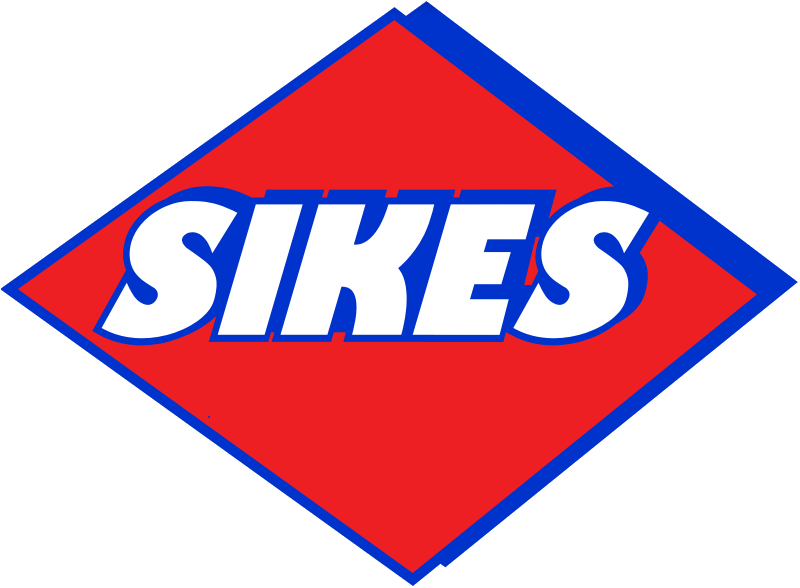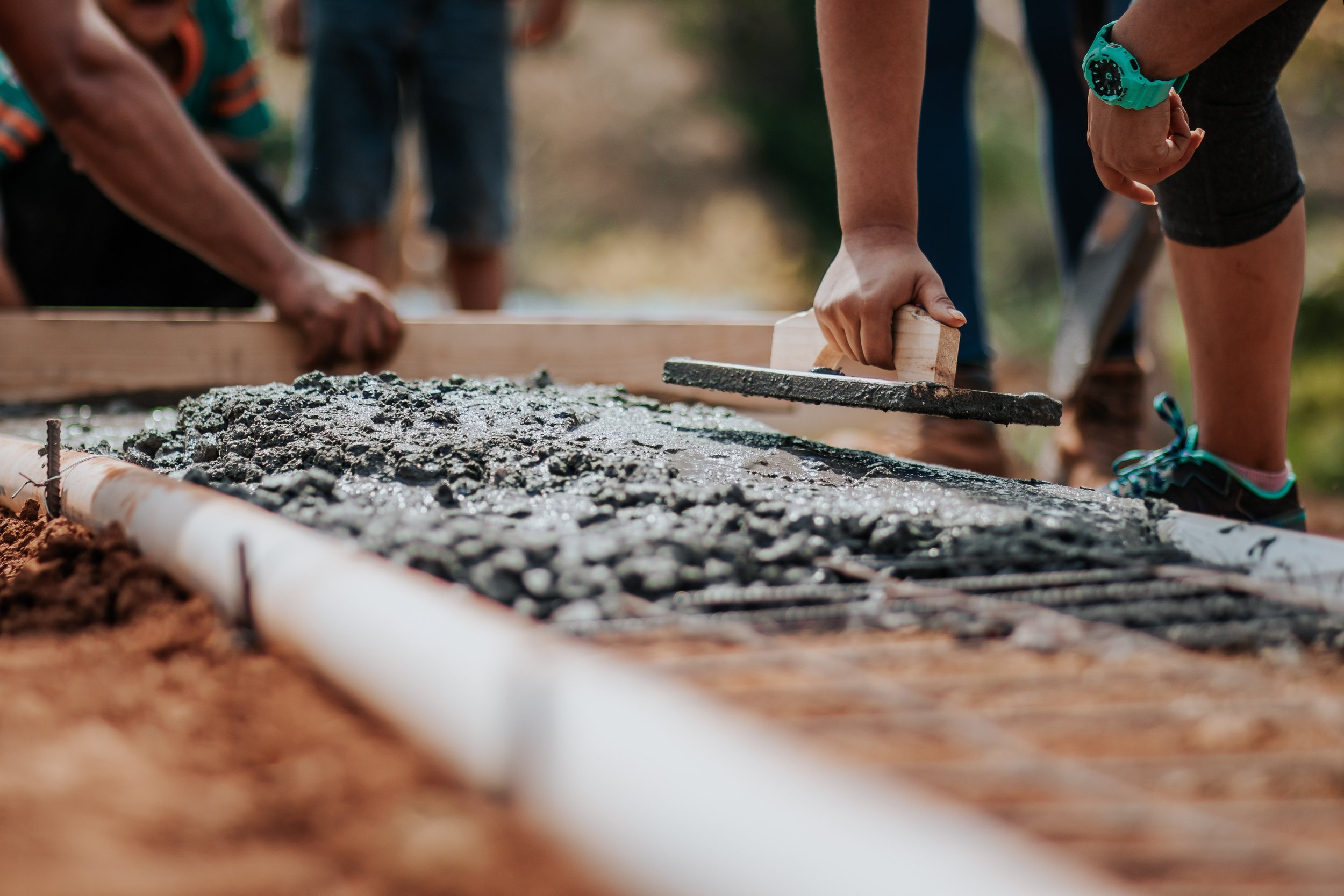THE RESPONSIBILITIES OF A CONCRETE FINISHER
CONCRETE FINISHER
A concrete finisher is a tradesperson who is responsible for smoothing, leveling, and finishing freshly poured concrete to create a durable and attractive surface. This typically involves using a variety of tools and techniques to manipulate the wet concrete, such as trowels, floats, screeds, and power trowels, to achieve the desired texture and finish.
The work of a concrete finisher is critical to the strength and durability of a concrete structure, as well as its appearance. Construction starts on sitework and installing underground utilities. But the construction process' appearance is on the hands of concrete finishers must have a thorough understanding of the properties of concrete and how it behaves as it cures, as well as the various tools and techniques that can be used to shape and finish it. They must also be able to read and interpret blueprints and plans to determine the specifications for a given project.The work of a concrete finisher typically begins after the concrete has been poured and spread out by a concrete contractor or crew. The finisher will use a variety of tools to manipulate the wet concrete, such as trowels, floats, and screeds, to create a smooth and level surface. They may also use power trowels to speed up the finishing process.As the concrete begins to harden, the finisher will use specialized techniques to create a desired texture or finish. For example, they may use a trowel to create a smooth, glass-like finish, or they may use a brush or broom to create a rougher, more slip-resistant surface.In addition to creating a smooth and level surface, a concrete finisher must also ensure that the finished concrete meets all relevant specifications and standards for strength, durability, and appearance. This may involve performing a variety of tests, such as checking the concrete's moisture content, compressive strength, and surface finish.Overall, the work of a concrete finisher is critical to the success of any concrete project, as they are responsible for creating a durable and attractive finished surface. The skills and knowledge required to be a successful concrete finisher are acquired through a combination of on-the-job training and formal education.What does a concrete finisher do?
The concrete finisher's role is to smooth and finish the surface of poured concrete, ensuring that it is level, even, and free of imperfections. To do this, a concrete finisher uses a variety of tools and techniques, including trowels, floats, and power screeds. The concrete finisher begins by roughing out the surface of the concrete using a trowel, making sure that it is roughly level and even. Then, using a float, the finisher smooths out the surface of the concrete, filling in any low spots and removing any high spots.
Once the surface of the concrete is smooth and even, the finisher will use a power screed to further smooth and finish the surface. This is a long, straight-edged tool that is pulled across the surface of the concrete, using a vibrating motion to help settle the concrete and eliminate any remaining imperfections.
Once the power screed has been used to finish the surface of the concrete, the finisher will use a trowel to give the surface a final touch-up, making sure that it is perfectly smooth and even. In some cases, the finisher may also use a broom or other tool to create a textured finish on the surface of the concrete.
In addition to smoothing and finishing the surface of the concrete, the concrete finisher is also responsible for ensuring that the concrete is properly cured. This involves keeping the concrete moist and at a consistent temperature for several days after it has been poured, in order to allow it to reach its maximum strength and durability.
The role of the concrete finisher is critical in ensuring that concrete structures are strong, durable, and aesthetically pleasing. Without the skill and expertise of a concrete finisher, the final result of a concrete construction project could be unsatisfactory and potentially even structurally unsound.
What skills do you need to be a concrete finisher?
To be a concrete finisher, one must possess a variety of skills including attention to detail, physical stamina, and knowledge of concrete materials and techniques.
Attention to detail is essential for a concrete finisher, as they must ensure the smoothness and levelness of the finished concrete surface. This involves carefully measuring and cutting the concrete to fit the desired space, as well as using specialized tools to create the desired texture and finish.
Physical stamina is also important, as concrete finishers typically work long hours on their feet and may be required to lift and carry heavy materials. They must also be able to withstand exposure to various weather conditions, as outdoor concrete work is often necessary.
In terms of knowledge, a concrete finisher must be familiar with the properties of concrete and how it behaves during different stages of the curing process. They must also be knowledgeable about the various types of concrete mixes, and how to properly mix, pour, and finish them to create a durable and aesthetically pleasing surface.
In addition, concrete finishers must be skilled in using specialized tools such as floats, trowels, and screeds to shape and finish the concrete. They must also be able to read and interpret blueprints and other construction plans to ensure that the finished concrete work aligns with the project specifications.
Overall, a concrete finisher must possess a combination of physical ability, attention to detail, and knowledge of concrete materials and techniques in order to be successful in their job. These skills are essential for ensuring the quality and durability of the finished concrete work.
What is the job outlook for concrete finishers?
The job outlook for concrete finishers is generally positive, as there is a strong demand for their services in the construction industry. Concrete finishers are responsible for smoothing and finishing the surface of poured concrete, ensuring that it is level and free of defects. They use a variety of tools and techniques to achieve the desired result, and must have a thorough understanding of how to properly mix and apply concrete.
As the construction industry continues to grow and develop, there will be a need for skilled concrete finishers to complete a wide range of projects. This could include building new homes and commercial buildings, as well as repairing and maintaining existing structures. Concrete finishers may work on residential, commercial, and industrial projects, and may also be involved in paving roads and other infrastructure projects.
What is the salary range for concrete finishers?
The salary range for concrete finishers can vary depending on several factors, including location, experience, and the type of employer. In general, however, concrete finishers can expect to earn an hourly wage of between $15 and $25 per hour. This translates to an annual salary of between $31,000 and $52,000 per year.
Concrete finishers are skilled workers who are responsible for smoothing and finishing the surface of poured concrete. They typically work on construction projects, where they use a variety of tools and techniques to create a smooth, durable surface on concrete floors, walls, and other structures. Concrete finishers typically have a high school diploma or equivalent and receive on-the-job training to learn the necessary skills.
The hourly wage for concrete finishers can vary depending on the location of the job. For example, concrete finishers in urban areas tend to earn higher wages than those in rural areas, due to the higher cost of living in cities. In addition, concrete finishers who work for large construction firms or government agencies may earn higher wages than those who work for smaller companies.
Experience is also a factor in the salary of concrete finishers. Entry-level concrete finishers can expect to earn on the lower end of the salary range, while those with several years of experience may earn closer to the upper end of the range. Concrete finishers who have specialized skills or training may also earn higher wages.
In addition to their hourly wage, concrete finishers may be eligible for benefits such as health insurance, paid time off, and retirement savings plans. Some employers may also offer bonuses or other incentives for workers who meet certain performance goals. Overall, the salary range for concrete finishers is fairly broad, but with experience and specialized skills, concrete finishers can earn a good income in this field.
In general, the salary range for concrete finishers is between $15 and $25 per hour, or between $31,000 and $52,000 per year. This range can vary depending on factors such as location, experience, and the type of employer. Concrete finishers with specialized skills or training may earn higher wages, and may also be eligible for benefits such as health insurance and paid time off.
Featured Blogs
SIKES CONCRETE INC.
8030 FL-77, Southport, FL 32409
850-265-4564






